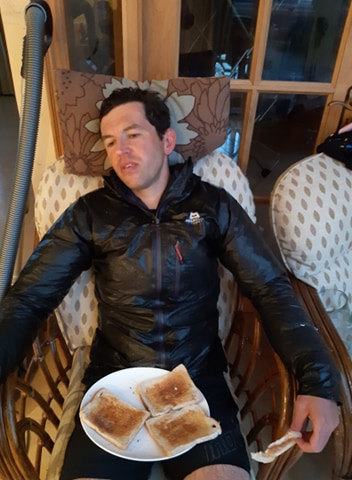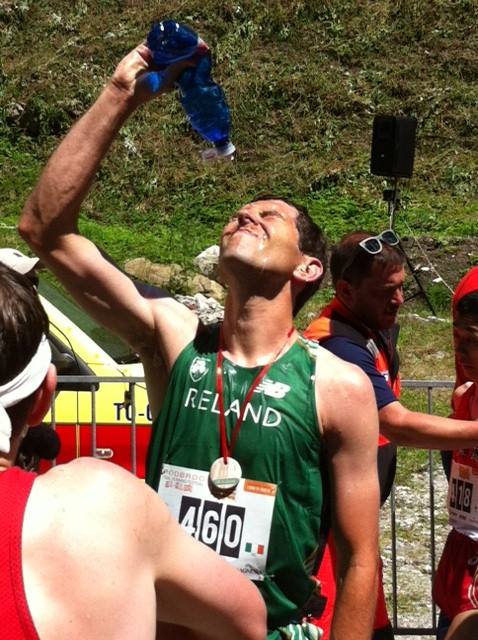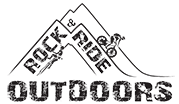My interest in sports nutrition has been a twenty-five year slow-burner, from the genuinely perplexed student wondering why my legs felt flat the morning after eight pints of John Smiths, to the puritanical obsessive and self-confessed ‘diet nazi’ of a few years back. These days I’d like to think I’ve got it dialled, having learned through a painful process of trial and error what my body responds well to, and what ‘recommended’ approaches are actually detrimental to personal performance. My approach to ultra-race nutrition involves zero carb-loading, minimal mid-race food and fluid intake, and precisely pre-planned fuelling to the extent that I know to the metre exactly where, when and what sustenance will be taken on board.
As personal knowledge has improved and adapted, goals have shifted somewhat, from desperately seeking marginal gains for ultimate race performance to the more rounded aim of being fit, healthy and not getting fat! The body of an elite(ish) athlete is extremely hard-earned and very easily lost and so I’m still always on the lookout for either the magic diet bullet or more realistically some scientific verification to my personal choices. That search led me to Rebecca Dent’s recent ‘Ultra Running Race Nutrition’ webinar.
Rebecca Dent is a Chamonix based dietitian with an established record of working with Olympic standard athletes in many different fields. Her client list includes the likes of bouldering world-series champion Shauna Coxsey and Wainwrights record holder Paul Tierney. She is also an ultrarunner herself, allowing personal insight into the impacts of refuelling decisions during events that demand the absolute most from bodies and minds. Hailing from the home of the daddy of all ultra events, the UTMB, provides invaluable insight for research as well as access to many world-class outdoor sports athletes.
The webinar itself proved to be both reassuring and thought provoking. Several key themes arose, but instead of the usual hearsay and rumour that seems to shadow most conversation on this subject, there were verified facts and figures from real-world studies. So what did I learn?
First and foremost (and head-swellingly gratifyingly) my approach is definitely that of a professional elite, in strong opposition to that of the vast majority of ultra-athletes. It seems that most competitors in the likes of the UTMB use a demand-based refuelling strategy, taking food from aid stations that appeals to their current state rather than being tactical and pre-thought. This results in troughs of energy, nausea and many other damaging symptoms that destroy overall performance. As previously stated, I’m extremely methodical in preparation for all my events, but having said that, the Ultras I’ve excelled in have all been 50km sprints over the mountains, done and dusted in four hours, completed without even missing a meal. Undertaking longer efforts like my sub-19.5 hour self-supported UTMB saw essential errors like eating ‘real’ food as opposed to simply sticking to gels and sweets; that learning was put to good use when breaking the Everesting World Record the following year.

The next clear message was re-emphasising just how individualised nutrition is. There is definitely no ‘one size fits all’ approach, and just because a certain pro excels with their loudly extolled plan, it may not work for you, and even if it did then it’d take years of bodily adaptation. Many ultra-runners desperately want to become ‘fat-adapted’, tapping into their most efficient long-burn fuel source, but this isn’t a switch that can be flicked, it takes time and training. Warnings over the need to practice carefully with all changes in fuelling were reiterated, something that seems so obvious, but is so commonly ignored when faced with a feed station bonanza and a body craving energy.
Some common myths and beliefs were also explored, particularly around fluid intake, sodium levels, carb intake, keto diets (which form the subject of Rebecca’s Phd thesis), cramping, anti-inflammatories and many of the other subjects that occupy a lifetime of forum debate.
As a dedicated student of the subject I didn’t expect to glean half as much as I did, and although I’ve no intention of competing this year at present, I continue to train twelve times a week and am interested to put some of the new-found knowledge to the test. It was definitely a thought-provoking way to spend an hour, providing plenty of food for thought (sorry, couldn’t resist, it’s a Dad joke thing!!).
Rebecca Dent has a series of webinars upcoming on a number of subjects around sports nutrition. For details see www.rebeccadent.co.uk.


